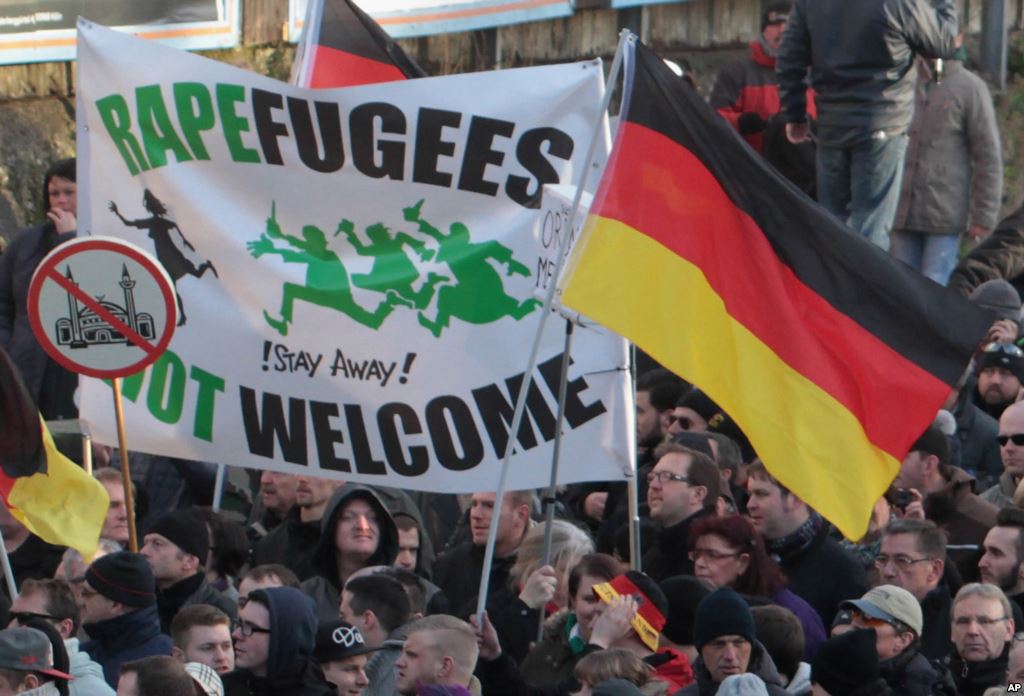More reasons for why the aftermath of Cologne matters to German women
By Becci Fobbe
While the majority of people all over the world celebrated the beginning of the New Year, Cologne experienced an unsettling turn of the year on the 1st of January. Hundreds of women were sexually harassed, a few raped – most of them verbally attacked. Police reports later stated that the attacks were planned out in detail by a group of young men. Because the men responsible happened to have a migration background, Germany’s media reporters and politicians focused on one angle of the story and this angle only: the failed integration of immigrants and the relation to the current refugee crisis. This focus is understandable: the immigration problems in Germany should be talked about. When thousands of immigrants still try to cross European borders, this issue is more pressing than ever.
Even though we are already two months into 2016, there are still plenty of other issues to address regarding this horrifying event. Unfortunately, Germany was only partly able to critically reflect on what happened that night. For the most part, the country got caught up in heavy debates about false police reports and immigration policies. A very popular and widespread response to the sexual harassment was a haughty “told you so” coming from Merkel adversaries, who would rather see German borders closed and German girls “protected from the evil asylum seeker”.
It is these “overnight feminists” that transform the women’s movement negatively. All of a sudden, people tried to use the attacked women of Cologne as a tool to discuss the need for an immigration policy change. But what these self-proclaimed protectors of German women neglect to see is that it is not only asylum seekers and immigrants who need a lesson or two in the art of gender equality. Generalizations harm everyone: it is definitely not all asylum seekers currently arriving in Europe who see women as the weaker sex, lack moral standards and bring with them a misogynist culture. Pointing the fingers at others is the easiest solution to dealing with a problem – the only issue here: the problem of violence against women, chauvinistic and macho behavior is not a problem that was imported into Germany through the arrival of refugees.
These underlying problems have been stifled in Germany for the last months, years and decades and even though great progress has been made on a political sphere, women still struggle. The women’s movement in Germany has come a long way, women are (on paper) equal to their gender counterpart and are generally able to pursue a life freely chosen. But violence against women is not eradicated. When claiming that the men of the Cologne attacks have to learn to integrate into the German culture, one has to critically ask what system one actually wants them to integrate into. Women do not only get harassed by poorly integrated men. The night in Cologne was horrendous, no doubt, but what about any carnival season? Drunk or date-rape-drugged girls in revealing or unrevealing costumes get raped in numbers higher than at any other time of the year – by men from all backgrounds. German men visit brothels like no other country in Europe; reports about verbal harassment as the work place or cheap but frightening chat-up line on the walk home are no exceptions. A country in which voices still claim “it was her fault”, and politicians advise women to “stay an arm’s length away from men and wear decent clothes”, should feel hypocritical when blaming others for misogynistic behavior. However, this does not seem to be the case and instead of addressing structural problems concerning gender-based violence, a scapegoat is found in the poorly integrated members of the country.
Yes, what happened in Cologne should never ever happen again, and therefore, integration policies need to be changed. However, women should be protected from any kind of harassment in their country: be it verbal attacks in their workplace, domestic violence at home or sexual assaults when going to a party. The self-proclaimed feminists that rapidly appeared after the Cologne attacks are more than welcome to join the struggle to change the treatment of women – under one circumstance: they have to join the entire fight – not only use it as a political tool for another agenda.
Becci Fobbe, Class of 2016, Major in Politics and Law, from Büdingen, Germany

